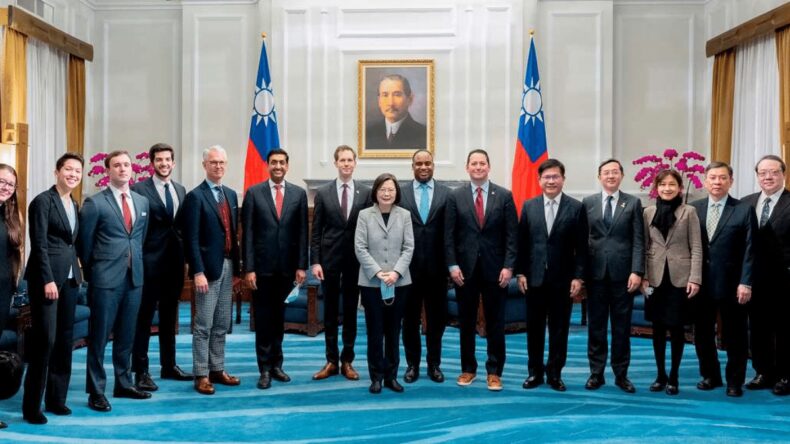Table of Contents
Taiwan’s President Tsai Ing-wen’s visit to the US and potential meetings with US officials, including House Speaker Kevin McCarthy, raised concerns and warnings from China, but Tsai remains committed to expanding Taipei’s diplomatic status despite external pressure.
Taiwan President Tsai Ing-wen’s U.S. stopover raises concerns from China

Taiwanese President Tsai Ing-wen’s visit to the United States, her first since 2019, has sparked concerns and warnings from China. Tsai arrived in New York on March 29, amid threats of retaliation from China if she met with U.S. House Speaker Kevin McCarthy. China views such a meeting as supporting Taipei’s desire for independence. Tsai is paying a visit to Guatemala and Belize, which are among the limited number of countries that extend diplomatic recognition to Taiwan.
China warns U.S. officials not to meet with Tsai

China has repeatedly warned U.S. officials not to meet with Tsai, as Taiwan is a sensitive territorial issue for China and a bone of contention with the United States. China claims Taiwan as its own territory and says it has no right to state-to-state ties, while Taipei disputes this. If Tsai meets with McCarthy, China has threatened to take measures to resolutely fight back. Beijing has made clear that all consequences should be borne by the U.S. side.
Meeting with U.S. officials
It would be the first time a Taiwanese leader meets a U.S. House Speaker on American territory if McCarthy agreed to the meeting. However, some view it as a less controversial option compared to McCarthy visiting Taiwan, which he expressed interest in doing. Along with this, Tsai is expected to have a meeting with Laura Rosenberger, who leads the Washington office of the American Institute in Taipei (AIT), an unofficial liaison organization between the United States and Taiwan. Rosenberger had previously held high-ranking positions concerning China and Taiwan in President Joe Biden’s National Security Council.
Tsai’s New York visit and her events

Tsai’s visit to New York will last until Saturday before heading to Los Angeles on her return from Central America. During her stopover in New York, none of her events are open to the press or the public.
Tsai’s U.S. layover coincides with a low point in U.S.-China relations
Tsai’s layover occurs during a period when some experts consider U.S.-China relations to be at their lowest point since Washington’s recognition of Beijing in 1979, which led to the switching of diplomatic ties from Taipei. The national security spokesperson for the White House, John Kirby, urged China to refrain from using a routine layover as an excuse to escalate their aggressive behavior towards Taipei. This visit marks Tsai’s seventh layover since her assumption of office in 2016, and it coincides with concerns in the United States and other nations that China may become more daring in their actions against Taipei following Russia’s invasion of Ukraine.
Taiwan’s diplomatic status

As countries switch their allegiance to Beijing, Taipei has been losing official recognition from an increasing number of nations. This trend continued on Sunday when Honduras declared its support for China, reducing the number of countries with formal diplomatic ties to Taiwan to only 13. However, Taiwan’s President Tsai Ing-wen is determined to engage with the world despite external pressure and vowed not to let it hinder the island’s progress.
Taipei’s relationship with China has always been sensitive, with China viewing Taiwan as a part of its own territory. However, Taipei disputes this claim and aims to be recognized as an independent nation. Tsai’s U.S. stopover and potential meetings with U.S. officials are seen by China as a threat to their territorial integrity, with China warning the U.S. not to interfere. Despite the pressure, Tsai remains committed to engaging with the world and expanding Taiwan’s diplomatic status.












